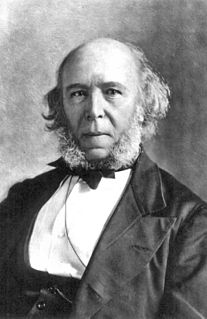A bachelor is a man who is socially regarded as able to marry, but has not yet. It is also the title of anyone of any gender or marital status who holds a bachelor's degree.
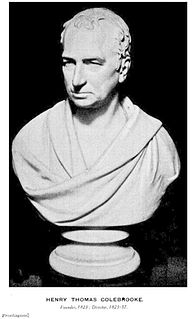
Henry Thomas Colebrooke FRS FRSE was an English orientalist and mathematician. He has been described as "the first great Sanskrit scholar in Europe".

Herbert Allen Giles was a British diplomat and sinologist who was the professor of Chinese at Cambridge University for 35 years. Giles was educated at Charterhouse School before becoming a British diplomat in China. He modified a Mandarin Chinese romanisation system established by Thomas Wade, resulting in the widely known Wade–Giles Chinese romanisation system. Among his many works were translations of the Analects of Confucius, the Lao Tzu , the Chuang Tzu, and, in 1892, the widely published A Chinese-English Dictionary.
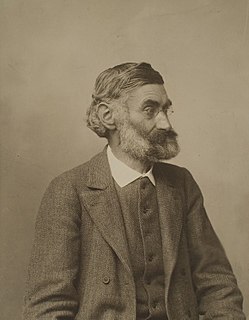
Ernst Karl Abbe HonFRMS was a German physicist, optical scientist, entrepreneur, and social reformer. Together with Otto Schott and Carl Zeiss, he laid the foundation of modern optics. Abbe developed numerous optical instruments. He was a co-owner of Carl Zeiss AG, a German manufacturer of research microscopes, astronomical telescopes, planetariums and other optical systems.
The Hibbert Journal was a large, quarterly magazine in softback book format, issued since 1902 by the Hibbert Trust, best described by its subtitle: A Quarterly Review of Religion, Theology and Philosophy. In the early years it was published by Williams and Norgate, 14 Henrietta Street, London, with the U.S. Agent being Sherman, French & Co,. 6 Beacon Street, Boston, Mass. The subscription c. 1911 was" Ten Shillings per annum, post free." It ceased publication in 1968.
Sir Charles James Lyall (1845–1920) was an Arabic scholar, and English civil servant working in India during the period of the British Raj.

Hart's Rules for Compositors and Readers at the University Press, Oxford – today published under the short title New Hart's Rules – is an authoritative reference book and style guide published in England by Oxford University Press (OUP). Hart's Rules originated as a compilation of best practices and standards by Horace Hart over almost three decades during his employment at other printing establishments, but they were first printed as a single broadsheet page for in-house use by the OUP in 1893 while Hart's job was controller of the university press. They were originally intended as a concise style guide for the staff of the OUP, but they developed continuously over the years, were published in 1904, and soon gained wider use as a source for authoritative instructions on typesetting style, grammar, punctuation, and usage.
The Vedanga' are six auxiliary disciplines in Vedic culture that developed in ancient times, and have been connected with the study of the Vedas. These are:
- Shiksha : phonetics, phonology, pronunciation. This auxiliary discipline has focussed on the letters of the Sanskrit alphabet, accent, quantity, stress, melody and rules of euphonic combination of words during a Vedic recitation.
- Chandas : prosody. This auxiliary discipline has focussed on the poetic meters, including those based on fixed number of syllables per verse, and those based on fixed number of morae per verse.
- Vyakarana : grammar and linguistic analysis. This auxiliary discipline has focussed on the rules of grammar and linguistic analysis to establish the exact form of words and sentences to properly express ideas.
- Nirukta : etymology, explanation of words, particularly those that are archaic and have ancient uses with unclear meaning. This auxiliary discipline has focussed on linguistic analysis to help establish the proper meaning of the words, given the context they are used in.
- Kalpa : ritual instructions. This field focussed on standardizing procedures for Vedic rituals, rites of passage rituals associated with major life events such as birth, wedding and death in family, as well as discussing the personal conduct and proper duties of an individual in different stages of his life.
- Jyotisha : Auspicious time for rituals, astrology and astronomy. This auxiliary Vedic discipline focussed on time keeping.
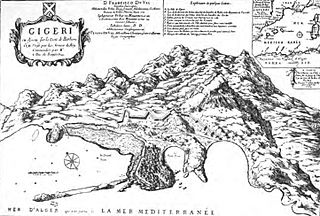
Stanley Edward Lane-Poole was a British orientalist and archaeologist. Poole was from a famous orientalist family as his mother Sophia Lane Poole, brother Reginald Stuart Poole and uncle Edward William Lane were famous for their work in this field. His other uncle was Richard James Lane, a distinguished Victorian lithographer and engraver.

Robert Henry Charles, (1855–1931) was an Irish biblical scholar and theologian. He is known particularly for English translations of apocryphal and pseudepigraphal works, and editions including Jubilees (1895), the Book of Enoch (1906), and the Testaments of the Twelve Patriarchs (1908) which have been widely used. He wrote the articles in the 1911 Encyclopædia Britannica attributed to the initials "R. H. C."
John Stuart Mackenzie (1860–1935) was a British philosopher, born near Glasgow, and educated at Glasgow, Cambridge, and Berlin. In 1884-89 he was a fellow at Edinburgh and from 1890 to 1896 fellow of Trinity College, Cambridge. He lectured on political economy at Owens College, Manchester, in 1890-93, and in 1895 became professor of logic and philosophy in University College, Cardiff. Mackenzie was an idealist philosopher and a Hegelian of the type of Green, Bosanquet, and Caird.

Sir George Matthew Fowlds was a New Zealand politician of the Liberal Party.

The New College at Hackney was a dissenting academy set up in Hackney, at that time a village on the outskirts of London, by Unitarians. It was in existence from 1786 to 1796. The writer William Hazlitt was among its pupils, sent aged 15 to prepare for the Unitarian ministry, and some of the best-known Dissenting intellectuals spent time on its staff.
John Sherry, was the Anglican Archdeacon of Lewes in East Sussex, England, between 1542 and 1551.
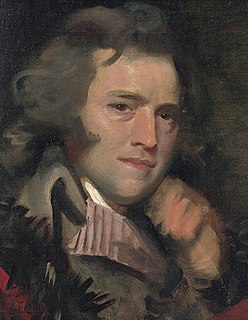
John Williams (1761–1818) was an English poet, satirist, journalist and miscellaneous writer, best known by the pseudonym of Anthony Pasquin.
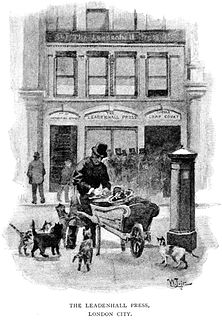
The Leadenhall Press was founded by Andrew White Tuer (1838–1900) as the publishing division of the London partnership of Field & Tuer, following a move to 50 Leadenhall Street in 1868. The firm began as job printers, stationers, and manufacturers in 1862, when Tuer joined with Abraham Field (1830–1891), an established producer of registers and log books. Among their early successes was the invention by Tuer of Stickphast Paste, a clean, vegetable-based product that quickly became the standard office paste.
Thomas Wotton, was an English antiquarian and genealogist, best remembered for his work The English Baronetage.
Williams and Norgate were publishers and book importers in London and Edinburgh. They specialised in both British and foreign scholarly and scientific literature.

Joseph Estlin Carpenter was a Unitarian minister, the principal of Manchester College, Oxford. He was an expert in Sanskrit and a pioneer in the study of comparative religion.
